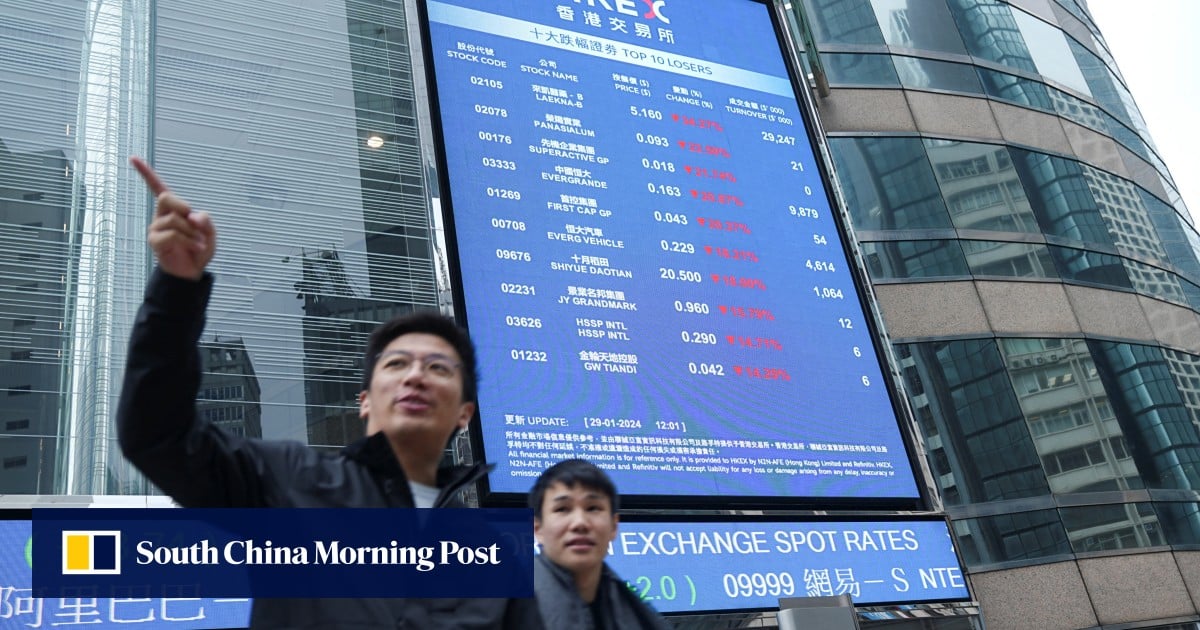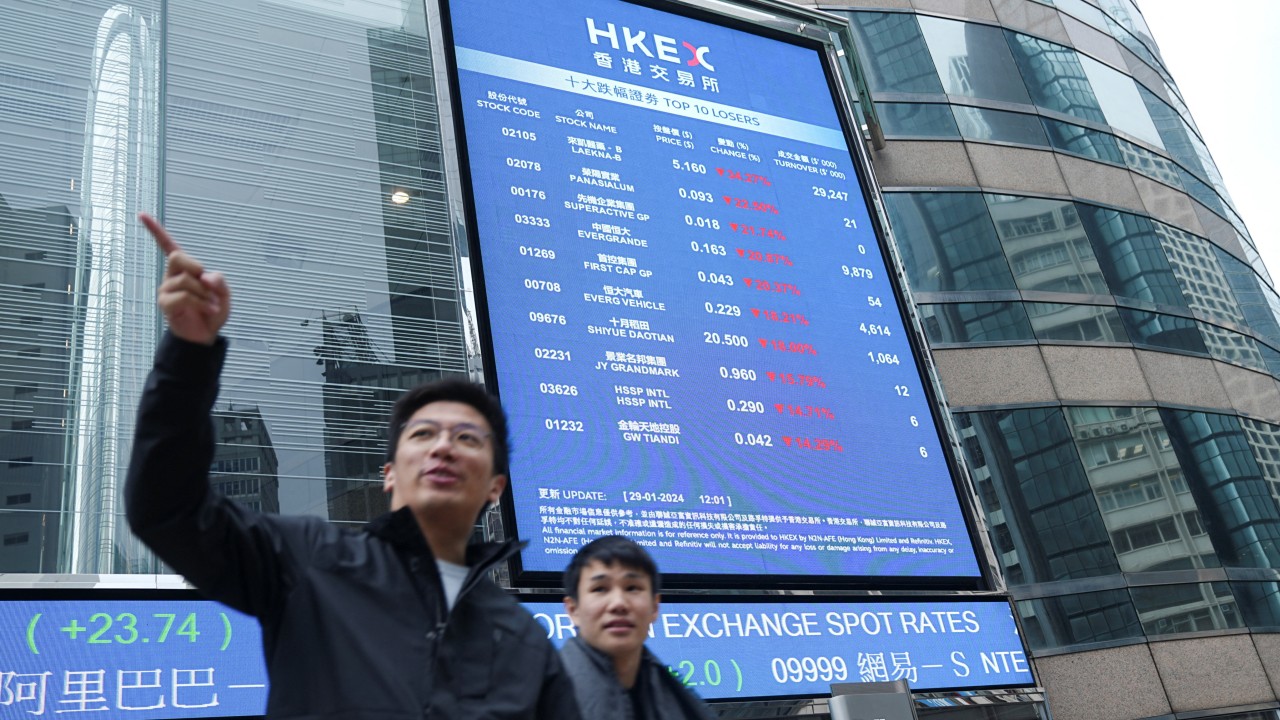
30 Jan Hong Kong stocks slip in worst January since 2016 on BYD earnings miss, weak China manufacturing outlook

The Hang Seng Index fell 1.8 per cent to 15,794.32 at 10.01am local time. The Tech Index dropped 1.9 per cent and the Shanghai Composite Index retreated 0.8 per cent.
Alibaba Group dropped 1.1 per cent to HK$71.80 and Tencent slid 1.7 per cent to HK$276.40, while Baidu fell 2 per cent to HK$103. WuXi Biologics slipped for a third day, losing 3.9 per cent to HK$22.25. BYD tumbled 3.9 per cent to HK$178.90 after 2023 earnings missed estimates. Its peer Li Auto declined 0.2 per cent to HK$109.20.
The Hang Seng Index has retreated 7 per cent this month, marking the worst start to a year since a 6.7 per cent slide in the first month of 2016.
China’s stimulus lifts stocks in short-lived rally as geopolitics weighs
China’s stimulus lifts stocks in short-lived rally as geopolitics weighs
Strategists at HSBC cut their 2024 targets for major onshore stock indices by 6 to 13 per cent in a January 26 report, saying they were “too optimistic about corporate earnings” after several rounds of earnings downgrades across the market since November last year.
Economic data this week may disappoint. China’s manufacturing probably contracted for a fourth consecutive month in January, according to the consensus among economists tracked by Bloomberg. The official PMI report is due Wednesday.
Elsewhere, machinery maker RIAMB Technology Development jumped 154 per cent to 54.55 yuan on the first day of trading in Shanghai.
Other major Asian markets gained. Japan’s Nikkei 225 climbed 0.3 per cent, while South Korea’s Kospi rose 0.6 per cent and Australia’s S&P/ASX 200 added 0.4 per cent.
